- Home
- Paullina Simons
Inexpressible Island Page 7
Inexpressible Island Read online
Page 7
“So how do you and Finch make it work?” Julian asks, looking at his hands instead of at her. “In a group setting,” he adds carefully.
There is a longish pause. “Biding our time is how,” she replies. She returns to talking about Liz, glossing over his silence with a brisk “What option do we have?” as if she can read his thoughts.
Who’s got the time to stay put, to linger?
Not you.
Last week, Robbie started taking Liz to work with him on Fleet Street. She now proofs his articles for the Evening Standard. She’s never had a boyfriend but has had a paralyzing crush on Wild for years, and after his accident last summer, if anything, loves him even more because he is less perfect and therefore more accessible to her and therefore more perfect.
Wild’s real name is Fred Wilder. “Isn’t that funny? Wild is Freddie. He’s been trying to rebel against his plumber name since birth.” As if the moniker weren’t punishment enough, his parents had named his younger brother Louis. “So one brother’s a plumber, the other a French king. I mean, that’s Wild’s life in a nutshell.”
“Where’s Louis?”
Mia shakes her head, glancing around for Wild, as if he might be nearby and can hear. “We don’t talk about Louis.”
“Ah,” Julian says. “Okay.” Beat. “So, tell me about you.”
“What about me?”
“You’ve told me about Liz, about Shona, about Wild. What’s your story?”
“I told you.”
“I mean, other than the war.”
“Is there anything other than the war?” she says. “I almost don’t remember.” Before the war, she strived for the West End stage, but that’s been put on hold, like everything. “Two bombings and my beloved Palace Theatre on Cambridge Circus has been boarded up!” she says with indignation. “As if people don’t need entertainment during war. They need it even more, if you ask me.”
Julian agrees.
“Do you know that theatre?”
“I do,” he says. “Once upon a time, a man loved his wife so much, he built her the most magnificent theatre in all of London, so she could go to the grand opera any time she wanted.”
“Yes!” Mia exclaims, staring at him in amazement. “How do you know that? No one but me knows that.”
“And me.”
Warmed and softened, Mia tells him about her work at Lebus, the furniture factory, becoming especially animated when she describes what they’ve started building for the war. “We take the hollowed-out frames of double-decker buses and paint them red. No engines, no transmissions, just the frames.”
“Like the cargo cult planes in Melanesia,” Julian says pensively.
“The what?”
“Never mind. Continue. Why do you do that?”
“We paint on the fake windshields, the wheels, even the numbers on the buses,” Mia says, “and we place them around the outskirts of town, where they’re easy to spot. The Germans bomb our decoy buses, while inside the city, we get to carry on with our business.”
“Aha. Like building film sets. Except for real life.”
“Yes, precisely! Fake buses for real life.”
Julian and Mia continue to sit together on top of the crumpled exterior wall, hunched over, their feet on the window frames. They’re covered head to toe in mortar dust, even their faces and mouths. She tightens her headscarf under her wool hat, breathes into her gloved hands.
Her mother is up in Blackpool with her Aunt Wilma, her three cousins and their seven kids. Aunt Wilma is atypically British. She is not calm. When the bombs started falling in September on a daily basis, Wilma became hysterical. Her vocal panic traumatized her grandchildren, Mia’s second cousins. “And don’t think that my mum doesn’t mention every chance she gets that her sister is a grandmother seven times over and my mum not even once.” So Wilma packed up the family and shuffled off to Blackpool where their family is from.
“Why didn’t you go with them?” Why, why, didn’t you go with them.
“My life is here.” She draws the coat across herself. “I’m with my friends, so I don’t care. I’ll admit that when I first saw the Luftwaffe fly overhead with no Spitfires or Hurricanes in sight, I thought I was watching my own destruction.” She peers at him. “Kind of the way you’re acting today.”
Julian says nothing. His eyes lock with hers. “Like I’m watching whose destruction?” he says quietly.
Mia sputters and moves on. “The first bomb that hit our house blew the roof off,” she says.
“The first bomb?”
“Oh, yes. The brigade pulled my mum out from under the dining room table, the table fine, my mum fine, and she yells to me, Mia, I told you it was a good table!” The young woman smiles in remembrance. “The council said they could do nothing for us, and we should consider ourselves lucky that we had a roof over our heads, and I pointed up to the open sky and said, do you have eyes? What roof? The chap got mad and left.” She laughs. “After we got bombed, we got free refreshment for two days. At first, Mum said it was nice and we should get bombed more often. We had the Emergency Londoners’ Meal Service. We had our bath in the mobile bath units—I call it the human laundry—and did our washing in the mobile laundry that was parked a block away from us on Commercial Street. It was cold in our house without a roof, but it was still September so it wasn’t too bad, and we were together. Aunt Wilma was next door with her kids and her kids’ kids, and Mum liked that. Truth be told, I liked it, too. I’m close to Wilma’s youngest daughter, Kara. She and I were born the same year. She’s like my twin. She’s funny.”
“Funnier than you?”
“Like, who even could be?” Mia smiles. “But then a bomb fell on Wilma’s house, and all the wood and glass ended up in our living room, and then it rained for a week straight, and that wasn’t funny. So Mum agreed that maybe it was time to go and my aunt said, you think? After they left, I stayed for a few days alone in the house, but then another incendiary fell, and, well, you know.” Mia hops up and extends her hand to him. “You want to go see what’s left of my house? Come on. We still have a few minutes before Finch is done. It’s just around the corner.”
They hurry to Commercial Street. “The bombs have torn all the leaves off the trees,” Julian says. “That’s why it looks like winter.”
“Silly boy,” Mia says. “It looks like winter because it’s actually winter.”
Folgate Street is a short narrow road between two large wide thoroughfares, Bishopsgate and Commercial.
Not much is left of Folgate. Most of the two dozen homes are rubble except for the four corner ones. They have craters inside them, and only partial roofs, but families continue to live there. Even milk and newspapers continue to be delivered, the milk in tins.
In the middle of Folgate, Mia’s flattened house is black cinder and dust.
“Mum said she’d be back as soon as she had my aunt and cousins settled,” Mia says, “but I telegraphed her to say not to bother. Where is she going to go? She can’t live at Bank with me. I admit, I’m a little jealous of Lucinda and her family. Sure, Lucinda’s a nutter, but Sheila and Kate have their mum. It was nice when Mum and I were together and could wash our clothes in the laundry truck. Of course then the gal who’d been driving it died. Her lungs got filled with dust. It’s her lighter I’m using.” Mia smokes another cigarette as they walk back, slowly. “When my house collapsed, I walked away. Mum taught me to do that. She said, eyes forward, and never look back; otherwise, you’ll be carrying the weight of that house with you the rest of your life.”
If only Julian could heed that advice.
“What’s Wild’s story, Mia? Tell me quick, before we return.”
“Okay, but you can never tell him I told you,” she says. “He lost his arm when he was trying to save his brother. A bomb fell during one of the early attacks in July, and Louis got trapped in their burning house. Wild tried to get him out. Louis kept telling Wild to go, but Wild wouldn’t leave him. Then the wall fram
e shifted, and he got stuck. He couldn’t get even himself out. Wild watched his brother die as their house burned down around them. He barely escaped himself. The firemen had to cut off his arm to save his life. Their parents were outside in the street, while their two sons were trapped inside.”
Julian lowers his head.
“It wasn’t great,” Mia says. “It’s still not good. Being a fireman was all Wild wanted to be since we were kids, and now he’s got no brother, no arm, and can never be a fireman. Can you imagine?”
“Yes,” says Julian.
8
Tales of Love and Hate
HE DOESN’T NEED TO USE ROBBIE’S BUNK BECAUSE WILD offers him his. Julian sleeps like the dead, all day and through two sirens, as he learns when he wakes up. At night the Ten Bells collect in the alcove. They’ve eaten and drunk elsewhere, but Wild somehow divines that Julian is starving and shares some bread with him and the rest of his small bottle of cheap whiskey. The gang appears to be in good spirits, except for Finch, who looks as if he can’t believe Julian is still around.
“Why are you giving him your food, Wild?” Finch asks.
“I share my food with him, Finch, because that’s what Jesus would do,” Wild replies, mock-solemn. “Who are you serving?”
“That’s not what I mean, and you know it. He could use some charity, obviously. I mean, where is the man’s ration card?”
“Or what, he’d eat like a king if he had one?” Wild says. “Hey, all you kingly ration-card holders, who wants some whalemeat? Delicious whalemeat right here! And look what else I might have for you with your royal ration card. I have one ounce of creamy butter, freshly churned. Now, Jules,” Wild says, his one arm hooking around Julian’s neck, “when you find your card, you will get one pat of butter a week. But it’s your choice how you use it. You have free will during the war, and don’t ever forget it. You can eat your pat of butter all at once or you could spread it out over seven days—like Finch.”
“Everybody’s always pinching me butter,” Mia sings with a naughty wink. “They won’t leave me butter alone.”
“Come on, dove, don’t joke like that,” Finch says. “It’s not proper.”
“Who won’t leave your butter alone, Folgate?” Wild says with a naughty wink himself, not letting go of Julian’s neck. “Put a name on it, will ya?”
“Do you see what I mean?” Finch says to Mia.
“Just having fun, Finch,” says Mia.
“Just having fun, Finch,” says Wild.
“Someone, explain to Finch what fun is,” says Duncan.
“How is making fun of me fun?” says Finch.
“In so many ways, Finch, I can’t count them all,” says Wild.
Carefully, quietly, Julian pats Wild on the back, two gentle pats, hoping no one will notice, not even Wild.
The men and women in the alcove circle around Julian to make him feel welcome. “Don’t worry, Julian, it’s nice here at Bank,” Shona the driver tells him, speaking in a loud, guttural twang. She is narrow of eye and body. Her hair is tied up with a head scarf. “But it would be even better if we had a place to keep chickens and pigs. Then we’d really have something. What I wouldn’t give for some extra bacon and a chicken.”
“We’re not allowed chicken and pigs in the Underground, Shona,” says Finch.
Shona ignores him, continuing to address Julian. “Hyde Park has a piggery, right next to where the buses park for the night.”
“Exactly. A park. Not the Underground,” Finch says.
“But, Shona, darling,” says Duncan, his gruff voice softened to a quaver, “if we had somewhere to put your chickens and pigs, Wild would kill them, cook the shit out of them, and eat them before you had a chance to say where is my little piggy.”
“Dunk’s right, Shona,” Wild says. “That’s exactly what I would do.”
“You can’t have chickens in the Underground,” Finch doggedly repeats, in the deep black underground where beneath a gap in the busted pavement human beings have made themselves a home.
It’s chilly in the tunnels. To repay their hospitality, Julian shows his new friends how to make a Swedish flame. Out on the empty eastbound Central Line platform, he uses a small axe (not an ice axe) to make six vertical cuts in one of the wood logs, as if he’s slicing a cake. He makes the cuts not all the way through, leaving the log with a few inches intact at the base. He pours two spoonfuls of kerosene into the center of the log and throws a match after it. The log burns for over two hours. They leave it standing, warm their hands and faces over it, make hot water, make tea, and then fit around it right on the platform, as if having a campfire.
Wild happily starts referring to Julian as Swedish.
As in, “Swedish, where did you learn to do that?”
And, “Swedish, what else do you know? Anything, for example, that might be useful to Folgate?”
“Shut up, Wild!”
“Shut up, Wild!” Finch says, and then quieter to Mia, “It’s because you were singing that butter pinching song that he talks like that.”
“Believe me, Finch, it’s not because of that song,” Wild says, turning to Julian. “Swedish, where did you learn to fight with your left?”
The young people on the platform sit around the burning log, sipping tea and whiskey. Their eyes are on Julian. Mia sits next to Finch. Her eyes are on him, too.
“You can learn it, too, Wild,” Julian replies. “Show them your mangled right claw, and while they’re gloating about how they’re going to lick you, wallop them with your left. You don’t even need to make a fist. Though you can.”
“That’s not what you did.”
“I trained for a long time to learn to fight southpaw. Also, to be fair, last night I didn’t fight.”
“What was it, then?” Duncan says. “Those three were down on the ground before they knew what hit them.”
“Like I said.”
When he sees Mia smile, Finch points to Julian’s missing fingers. “One of the real fights didn’t go so well for you, eh?”
Julian shrugs. “As they say, Finch, dead men tell no tales. And I’m still here. Make of that what you will.”
“Oh, tell us, Swedish!” Wild says. “Don’t hold back. We love a good story. Nothing better in the dungeons during war than to drink awful Irish whiskey with friends and listen to a rousing tale of mayhem. The only thing better than a story about a fight is a real fight.”
Everyone seconds hear, hear, even the girls!
“But I suppose that’s too much to ask,” Wild adds wistfully. “So, tell us what happened.”
Julian shrugs. “I got into it with a guy.”
“What guy?”
“A guy who wanted a fight. He grabbed my knife that dropped on the ground. I jerked my hand just enough, or he would’ve taken it off at the wrist, and I would’ve bled out. That knife was like the fucking guillotine—excuse me, ladies.”
Julian! Watch out! Unsteadily, he reaches for the cup of whiskey in Wild’s hand.
“Maybe you shouldn’t have left your knife lying around like that,” Finch says.
“You’re right, Finch,” Julian says. “I definitely shouldn’t have.”
“That is a terrible story.” To everyone’s surprise, the man who says this is Peter Roberts. They didn’t think he was even listening. He is a few feet away from them at the table, at his customary spot next to Frankie the puzzle maker. “Young man,” Roberts says sternly, as if scolding Julian, “don’t you know that the human capacity to contemplate life, to feel, to tell stories, is holy? It comes from the immortal soul. No animal does it, sits around the fire and tells stories. Only humans. And what you’ve just told us is not a story. You’ve merely summarized some distant events without passion or prejudice. There was nothing real in it, and therefore we felt nothing. For shame.”
Wild grins, knocking into Julian. “That’s a first, Swedish. With your deeply inadequate storytelling skills, you’ve roused the previously silent Robbie. The bowtie
journalist claims you can do better. What say you?”
Julian takes a long swig of whiskey. Finch complains about how much of the common liquor he’s drinking. Julian promises Finch he’ll get more. But for now, he’s sufficiently langered to tell them a proper story. He has many. Which one would they like to hear first? He’s got one about a hanging in Tyburn. He’s got one about murder in a brothel. And he’s got one about a fight to the death at sea.
The kids look to Peter Roberts for guidance. The dignified man considers his choices. He’s even put down his French lesson book! “Robbie,” Mia says, “would you like to come over here and sit with us by the fire? Duncan, go help Robbie with his chair.”
“Don’t you dare, Duncan.” Getting up, Peter Roberts grabs his own chair. “I’m sixty, Maria, I’m not an invalid. Someday when you’re sixty, you’ll understand.”
“Swedish,” Wild says, “why did you flinch just now when Robbie said that?”
“Why are you always studying him, Wild?” Finch snaps. “Who cares why he flinched? Who cares why he does anything,” the man adds in a peevish mumble.
“Finch, shh. Robbie, come,” Mia says. “Guys, make room.”
Peter Roberts sets his chair in the circle among the young. “Since there may not be a tomorrow,” he states philosophically, “Julian might as well start with the sea battle.”
The young women grumble, pleading for something more delicate, all except the tough-cookie Shona, who doesn’t do delicate, and Frankie, who remains with her puzzle and offers no opinion.
The boys shout the girls down. “No one wants a soft story, ladies,” Wild says.
“Don’t worry, Wild,” Julian says, “even my soft stories end in death.”
“Is there any love in your stories?” Liz asks quietly, leaning forward. The gang gasps. Liz has spoken! Liz opened her mouth and spoke to a stranger in a public setting! They cheer. They raise a glass to Julian for making Liz speak and for getting Peter Roberts to put down his French book.
“If only we could separate Frankie from her puzzle, then we’d really have something,” Kate says, glancing over to the table. Frankie blinks but doesn’t respond.

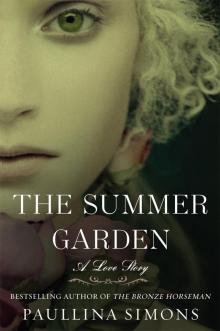 The Summer Garden
The Summer Garden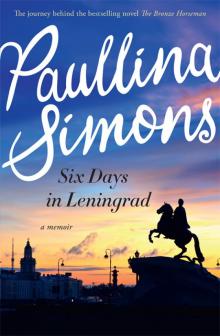 Six Days in Leningrad
Six Days in Leningrad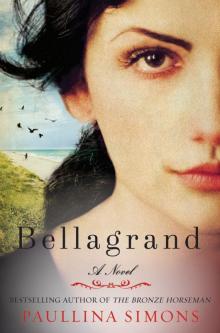 Bellagrand
Bellagrand Tatiana and Alexander
Tatiana and Alexander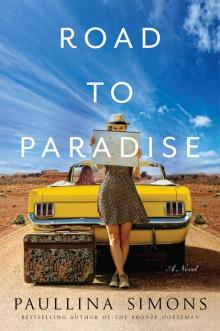 Road to Paradise
Road to Paradise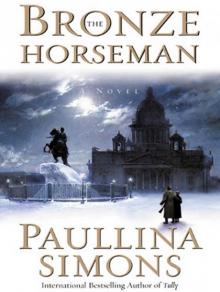 The Bronze Horseman
The Bronze Horseman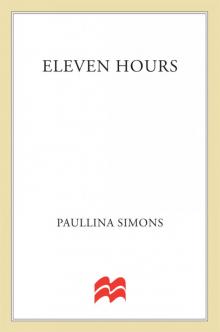 Eleven Hours
Eleven Hours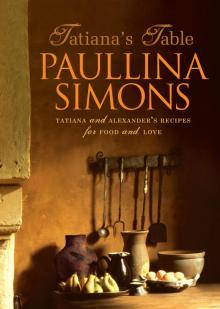 Tatiana's Table: Tatiana and Alexander's Life of Food and Love
Tatiana's Table: Tatiana and Alexander's Life of Food and Love The Girl in Times Square
The Girl in Times Square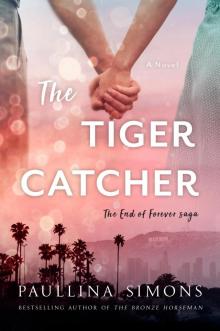 The Tiger Catcher
The Tiger Catcher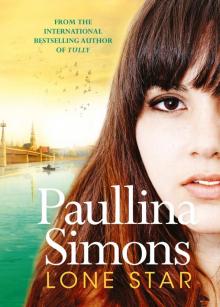 Lone Star
Lone Star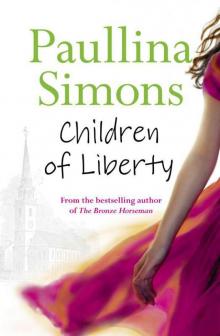 Children of Liberty
Children of Liberty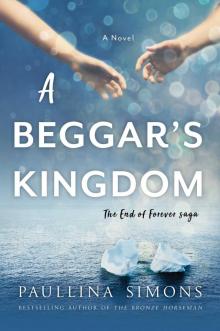 A Beggar's Kingdom
A Beggar's Kingdom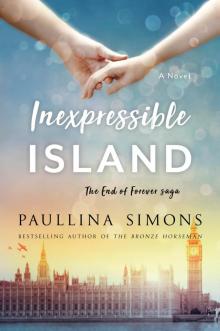 Inexpressible Island
Inexpressible Island Tatiana and Alexander: A Novel
Tatiana and Alexander: A Novel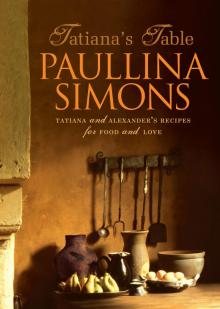 Tatiana's Table
Tatiana's Table A Song in the Daylight (2009)
A Song in the Daylight (2009)